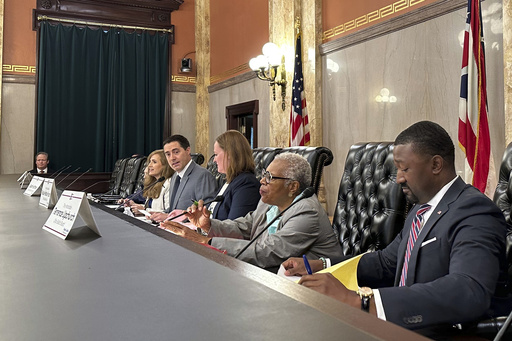The Ohio Supreme Court made a decision on the ballot language for Issue 1, which deals with gerrymandering reform, despite some controversy. The court’s ruling, with a 4-3 vote, led to the rewriting of two sections while upholding the rest. The ballot language approved by the Republican-controlled Ohio Ballot Board received criticism from Citizens Not Politicians, the group promoting the amendment, for being biased and inaccurate.
The proposed bipartisan amendment aims to establish a 15-member citizen commission to address Ohio’s gerrymandering issues, identified after the unconstitutional drawing of political maps favoring Republicans following the 2020 Census. While the majority of the court found most of the language to be acceptable, it acknowledged mischaracterizations in two specific sections related to legal challenges and public input on redistricting.
Citizens Not Politicians expressed disagreement with parts of the court’s decision but agreed that certain elements of the language were problematic and presented an argument against Issue 1. The group highlighted the need for clarity to prevent confusion among voters, accusing politicians of spreading misinformation.
The court’s ruling drew a division among the justices, with Chief Justice Sharon Kennedy and three others supporting the majority opinion while Justices Michael Donnelly, Melody Stewart, and Jennifer Brunner dissented. The approved ballot description, defended by Justice Fischer, includes information about the commission’s requirement to gerrymander districts in favor of the two major political parties, reflecting the essence of the proposed amendment.
Republican Secretary of State Frank LaRose, who heads the ballot board, welcomed the court’s decision, emphasizing the importance of providing voters with accurate details to make informed decisions. The finalized ballot language, along with the full text of the proposed amendment, will be available at polling locations for voters’ reference.
In response to the ruling, the ballot board will convene to revise the sections deemed unconstitutional, mirroring a similar process from the previous year involving disputed ballot language on abortion access, which ultimately passed despite the controversy.



